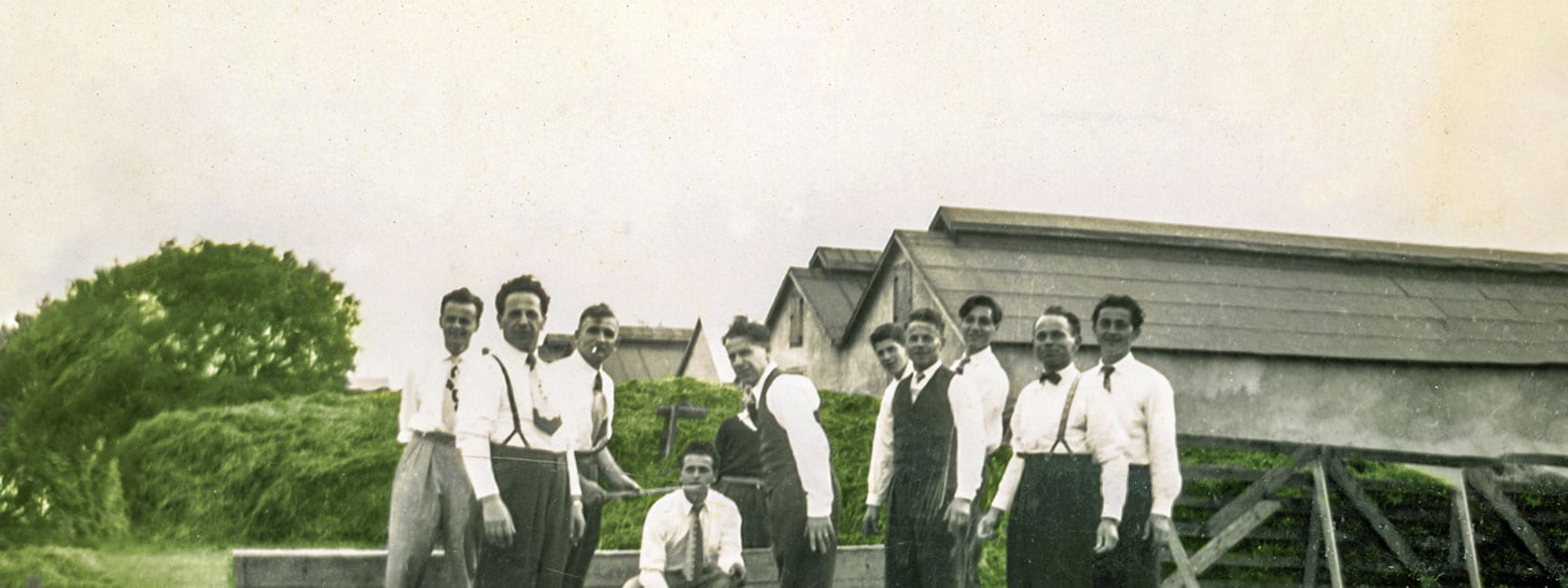Date
June 21, 2011
Maker
Columbus Centre
Accession#
ICEA2011.0050.0001
Interview With Felicia Battigalli
Felicia Battigalli was born in 1912 in Montreal. Both of her parents were from Italy; however they met and were married in Montreal. Growing up Felicia had one brother and one sister—who died at the age of 22 from meningitis. As a youth, Felicia attended dances at il fascio as well as local processions in the community. She took her first job at Imperial Tobacco and enjoyed this position more than teaching, which she thought would be her career originally. Felicia met her future husband, Fiore Annibale Battigalli as a pupil in his classroom at the Institute of Italian Culture and later became his secretary. They were an engaged couple when Battigalli was arrested at the Institute; two officers came into the office and told Felicia that he “would be back in a few days.” The Royal Canadian Mounted Police (RCMP) returned to the office the next day and confiscated all the papers, documents, and alcohol there. Felicia refused to let the police take her typewriter since it belonged to her. Annibale did not return and was taken to the internment camp at Petawawa, from where he sent Felicia letters and cards. The Battigallis were married in 1943 after Annibale returned home. He then found it difficult to find work as an Italian Canadian, but secured a job at a firm as a chemist. Annibale passed away at the age of 79, however Felicia is happy to have the company of their two daughters, Lydia and Anita.
Felicia Battigalli introduces herself and briefly speaks about her parents.
Felicia Battigalli speaks about the Montreal nieghbourhood she grew up in. She then goes on to speak about her schooling.
In this brief clip Felicia Battigalli speaks about her father’s place of employment.
Felicia Battigalli speaks about her husband Fiore Annibale Battigalli and his role with the Institute of Italian Culture.
Felicia Battigalli discusses her first job working for Imperial Tobacco.
Felicia Battigalli speaks about the local fascio and the Casa d’Italia.
Felicia Battigalli speaks about the processions in her Montreal neighbourhood.
In this clip Felicia Battigalli speaks about Annibale Battigalli’s arrival from Italy and his involvement with the local Italian Consul Brigidi. She also describes the Italian classes he taught at the Italian Institute and the Italian government sponsored trips to Italy.
Felicia Battigalli describes how she came to know her future husband Annibale Battigalli.
Felicia Battigalli discusses the Italian language classes she attended that were taught by Annibale Battigalli.
In this clip Felicia Battigalli speaks about her job working as the secretary at the Consulate. She goes on to describe her impressions of Consul Brigidi.
Felicia Battigalli briefly describes the day Annibale Battigalli was arrested by the RCMP.
Felicia Battigalli begins by detailing the days leading up to June 10, 1940. She then goes on to describe the arrest of Annibale Battigalli and other Italian Canadian men in the neighbourhood and her reaction to the arrests.
Felicia Battigalli describes how she received a card from Annibale letting her know that he was at Petawawa.
Felicia Battigalli recalls how the officers confiscated all the materials related to Annibale’s business and that he was not able to resume selling mass wines after he was released from camp. She goes on to describe how eventually found work after his release.
Felicia Battigalli describes the day that Annibale returned home from the internment camp.
Felicia Battigalli discusses sending care packages to Annibale in Petawawa. She also speaks about how the women who were left behind coped.
Felicia Battigalli mentions that she only received postcards from Annibale during his internment, but that some family’s went to Petawawa to visit the men.
In this clip Felicia Battigalli shares what she knows about Annibale’s experience in the internment camp.
In this clip Felicia Battigalli and her daughter Anita reflect on the internment of Italian Canadians and share what they think should have been done for these men and their families.



